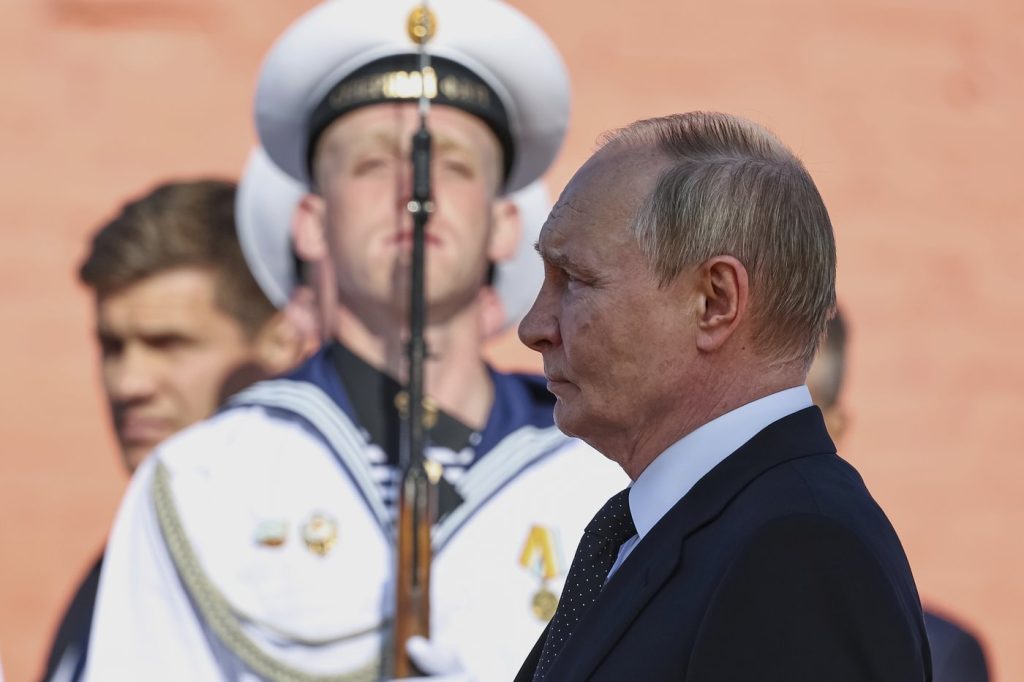Russia has officially declared that it no longer considers itself bound by its self-imposed moratorium on the deployment of nuclear-capable intermediate-range missiles. This significant shift comes as tensions between Moscow and Washington escalate once more, particularly in the context of the ongoing conflict in Ukraine. The Russian Foreign Ministry issued a statement on Monday linking this decision to perceived threats from the U.S. and its allies, who are reportedly developing intermediate-range weapons and preparing for their deployment across Europe and other regions.
The Foreign Ministry specifically highlighted U.S. plans to deploy Typhoon and Dark Eagle missiles in Germany starting in the coming year. Such actions, according to the ministry, create "destabilizing missile potentials" near Russian borders, which are construed as a "direct threat to the security of our country" and could lead to significant adverse consequences for both regional and global stability. This escalation heightens the risks of an arms race reminiscent of the Cold War era.
While the statement did not outline specific retaliatory measures, President Vladimir Putin has previously indicated intentions to position new Oreshnik missiles in Belarus, a neighboring ally, later this year. The Russian Foreign Ministry asserted that decisions on response measures would be tailored according to an interdepartmental analysis that considers the scale of deployment of American and other Western land-based intermediate-range missiles, alongside the broader international security landscape.
This announcement followed former President Donald Trump's declaration that he was reassigning two U.S. nuclear submarines in response to what he termed "highly provocative statements" from Dmitry Medvedev, former president of Russia (2008-2012) and current deputy chairman of Russia's Security Council. Trump’s remarks were timed as a deadline approached for the Kremlin to negotiate a peace deal regarding Ukraine.
Dmitry Medvedev has made provocative comments in recent weeks, warning Trump against issuing ultimatums concerning the peace deal, which he claimed could increase the probability of conflict. He characterized the moratorium withdrawal as a response to what he described as NATO's anti-Russian posture. Medvedev expressed that this marked a new reality that adversarial nations would need to reckon with, adding expectations of further moves from Moscow.
Intermediate-range missiles, defined as those capable of flying between 500 to 5,500 kilometers (approximately 310 to 3,400 miles), were previously banned under the 1987 Intermediate-range Nuclear Forces (INF) Treaty. However, both the U.S. and Russia abandoned the treaty in 2019, accusing one another of violations. Despite abandoning the treaty, Russia maintained a self-imposed moratorium on missile deployment until recent developments prompted this change.
The dissolution of the INF Treaty has reignited fears of a Cold War-style missile crisis in Europe. Intermediate-range missiles are particularly destabilizing, as they have shorter flight times than intercontinental ballistic missiles (ICBMs), which increases the risk of a catastrophic miscalculation during a nuclear alert. According to reports, Russia’s new Oreshnik missile, which has already been used in the Ukraine conflict, possesses the range to reach all parts of Europe and can be equipped with either conventional or nuclear warheads.
Putin has touted the capabilities of the Oreshnik missile, noting that its advanced multiple warhead technology can reach targets at speeds up to Mach 10, evading interception. He indicated that multiple conventional strikes using Oreshnik missiles could inflict devastation comparable to a nuclear assault. Furthermore, he warned that Moscow might employ such capabilities against NATO allies if they continue to support Ukraine with long-range missile technologies.











